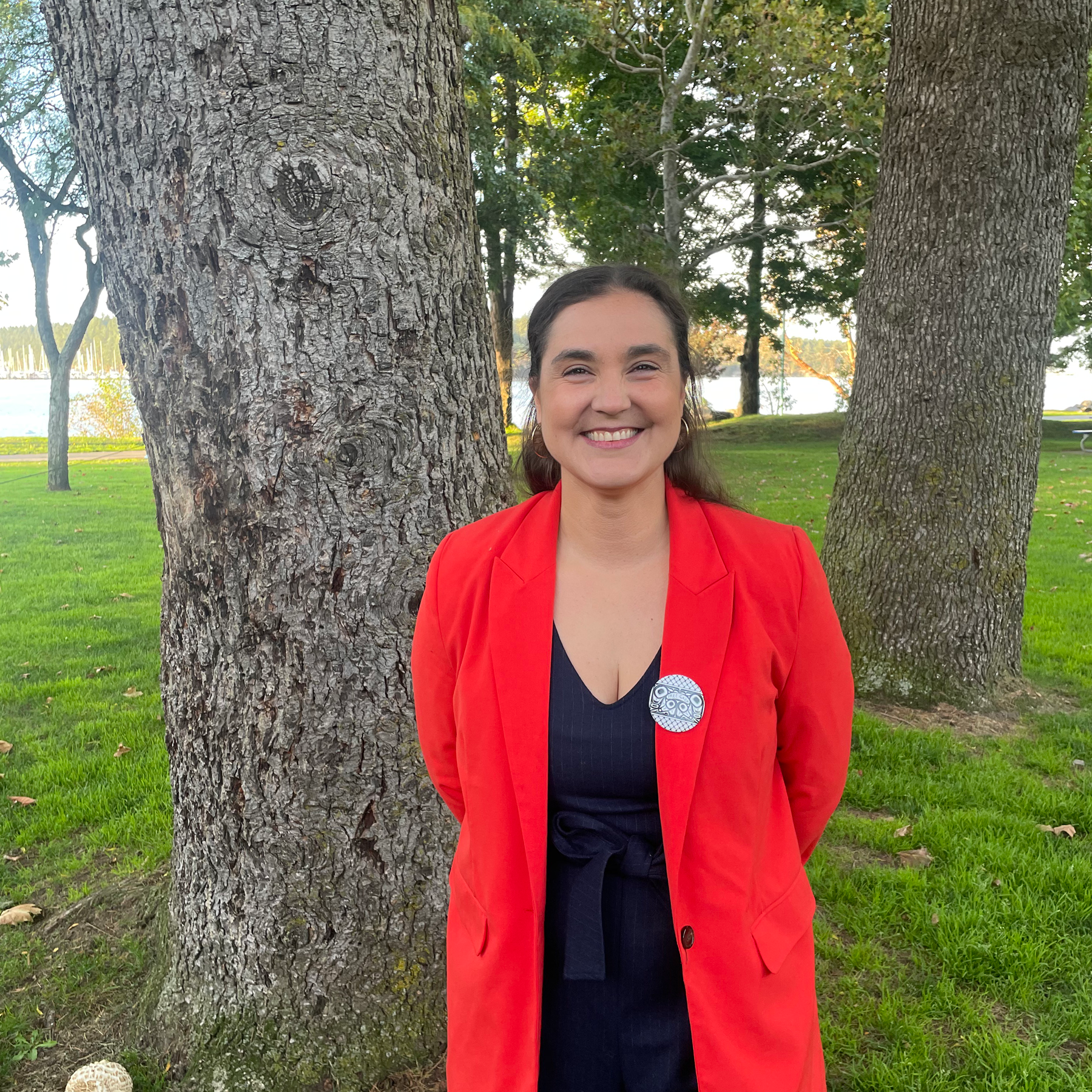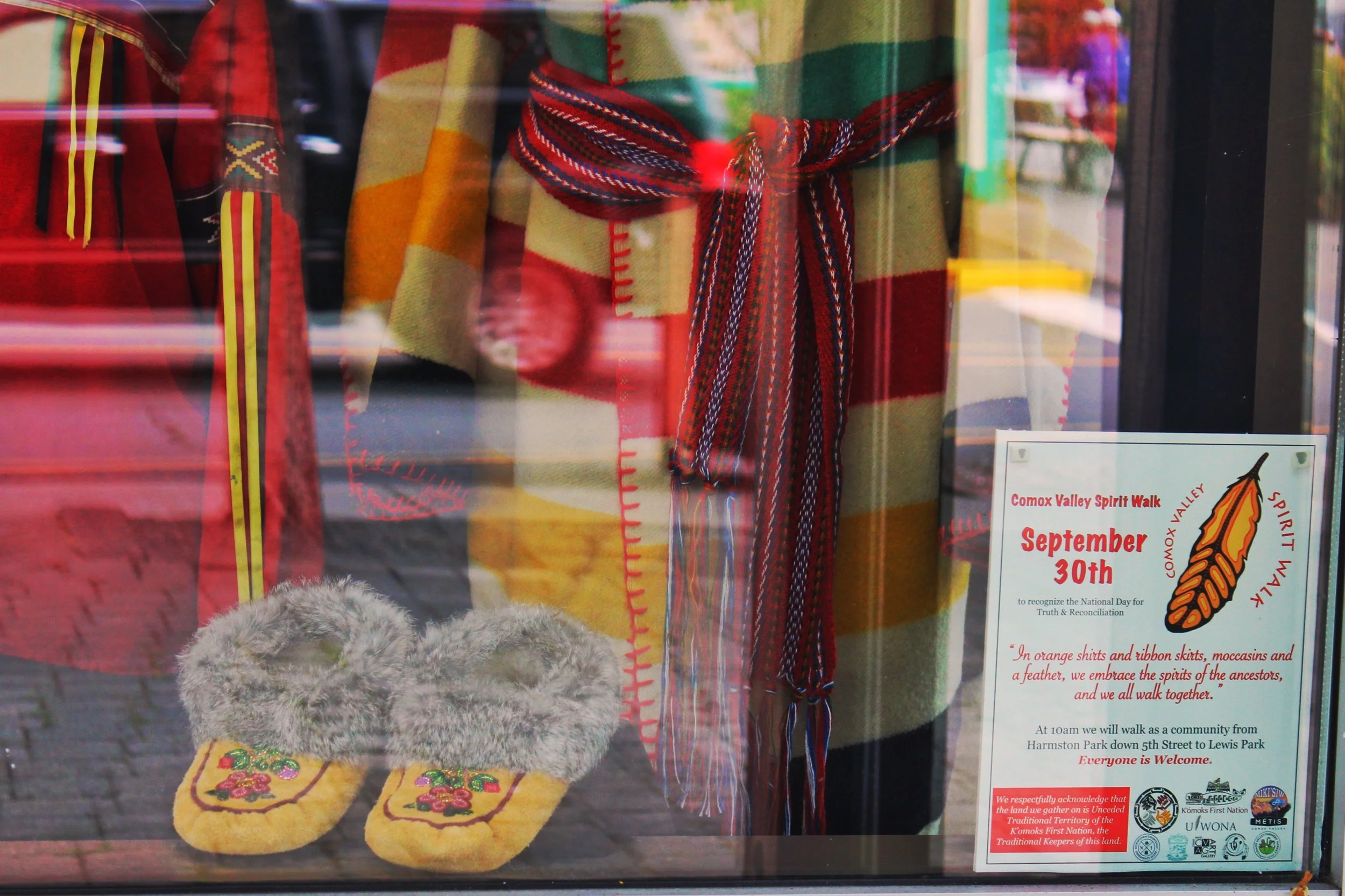Introduction
CHLY 101.7FM broadcasts from the traditional territory of the Snuneymuxw First Nation. The Snuneymuxw are a signatory to the pre-Confederation Douglas Treaties. Along with Treaty 8, the Douglas Treaties (1850–1854) were the last treaties signed between the Crown and the First Nations in British Columbia until the Nisga'a Final Agreement (1998).
CHLY's signal reaches many other territories on the Salish Sea, including that of the Stz'uminus (Chemainus), Snaw-Na-Was (Nanoose), and K'ómoks (Comox) First Nations to name only a few.
As an organization, CHLY recognizes that there is more work to be done regarding Indigenous reconciliation, and CHLY is committed to continued work in this area, informed by TRC Call to Action 84.
Recognition of territories within our Broadcast Community
It is important our station and community make an effort to recognize territories of First Nations in our Broadcast Community, be it where we broadcast from or where we are broadcasting to. We ask our hosts and producers to make effort to incorporate respectful recognition into their programs where they can.
Some examples:
“Broadcasting from the traditional territory of the Snuneymuxw, you’re listening to the VIU Meter on CHLY 101.7FM in Nanaimo, I’m your host Jolene Black...”
“Broadcasting to the the territory of the Stz’uminus, you’re listening to the VIU Meter on CHLY 101.7FM, I’m your host Jolene Black...”
First Nations within our Broadcast Community
Some of the names below have glottal stops symbolized by the following: *7 / ’ / ɂ. This video offers a good explanation of what a glottal stop is.
Nanaimo — Snu’ney’muxw (SNAH-nay-MUCK)
Nanoose — Snaw’naw’as (SNAW-now-US)
Chemainus — Stz'uminus (sh-MAY-nus)
Qualicum — (KWAH-lik-uhm)
Comox — K'ómoks (CO-mox)
Lyackson — (LAY-ik-SEN)
Penelakut — (pen-EL-ah-kut)
Halalt — (ha-LALT)
Cowichan — Kw'amutsun (COW-ut-ZUN)
Sechelt — Shíshálh Shishá7lh* (SEA-shelt)
Squamish — Skwxwú7mesh* (SKWA-mish)
Weiwaikai — Wiwēqay̓i (WEE-way-KAY)
Weiwaikum — Wiwēkam (WEE-way-KUM)
Languages
There are a variety of First Nations languages in our broadcast community that are part of the Salishan (Central Coast Salish) and Wakashan (Northern) language families.
Salishan
Hulquminum / Hul’q’umi’num’(hulk-uh-may-lem). This is the Island dialect of the Halkomelem language, with the mainland Musqueam speaking the downriver dialect hǝn̓q̓ǝmin̓ǝm̓, and the Stó:lō speaking the upriver dialect Halq’eméylem. There are also sub-dialects of the Hulquminum language, with variations in pronunciation between Snuneymuxw-Snaw’na’was (Nanaimo and Nanoose) and Kw'amutsun (Cowichan) speakers.
She Shashishalhem / Sháshishálem (SHE-sha-SHE-sha-klem). This is the language of the shíshálh Nation (Sechelt) located on the Sunshine Coast.
Éy7á7juuthem / ʔayajuθəm (EYE-a-jooth-um). Spoken by the Homalco (Xwémalhkwu) of Bute Inlet and Campbell River (where their Vancouver Island reserve is located). This was also the traditional language of the Island K’ómoks before it fell out of favour.
Pentlatch (Pent-latch). The traditional language of the Qualicum. There have been significant efforts to revitalize this language in recent years after its last fluent speaker died in 1940. In 2023 Pentlatch was declared a living language.
Wakashan
Lekwala / Liqʼwala (laich-wall-ah). A dialect of Kwak̓wala spoken by the Wei Wai Kum and Wei Wai Kai of the Campell River and Quadra Island, as well as the K’ómoks of the Comox Valley. The K’omoks were traditionally a ʔayajuθəm speaking Coast Salish people, but through the late 1800s inter-marriage and conflict eventually led to an integration with Liqʼwala speaking Kwakwaka'wakw peoples in the region.
Indigenous centred programs we air
Truth and Reconciliation Commission Call to Action 84
While the campus-community radio sector is not specifically mentioned, we work to pursue these calls to action to the best of our ability, specifically Call to Action 84 of the TRC (Source: http://trc.ca/assets/pdf/Calls_to_Action_English2.pdf):
Media and Reconciliation
84. We call upon the federal government to restore and increase funding to the CBC/Radio-Canada, to enable Canada’s national public broadcaster to support reconciliation, and be properly reflective of the diverse cultures, languages, and perspectives of Aboriginal peoples, including, but not limited to:
i. Increasing Aboriginal programming, including Aboriginal-language speakers.
ii. Increasing equitable access for Aboriginal peoples to jobs, leadership positions, and professional development opportunities within the organization.
iii. Continuing to provide dedicated news coverage and online public information resources on issues of concern to Aboriginal peoples and all Canadians, including the history and legacy of residential schools and the reconciliation process.
Ongoing Priorities & Projects
Research and reading of materials to improve our own coverage ie: Decolonizing Journalism: A Guide to Reporting in Indigenous Communities by Duncan McCue, and Elements of Indigenous Style by Greg Younging.
Creation and expansion of a pronunciation guide for our on-air hosts and producers.
Highlighting music from Indigenous artists, both traditional and contemporary.
Recording Station IDs that recognize the territories that we broadcast from and broadcast to.
Relationship development with local First Nations elders.
Recruiting Indigenous volunteers and programmers to lead and take part in the creation of sustainable Indigenous-centred programs and segments.
Recruitment of Indigenous board members.
Providing training resources to Indigenous youths and Indigenous-led audio projects.
Other Resources
Vancouver Island University has a Community Classroom page explaining Land Acknowledgements.
Below is a piece by the Navigator interviewing Jennifer Christoffersen of Shq’apthut – A Gathering Place. She gives a brief history of the building and what it has to offer VIU students and the community.












